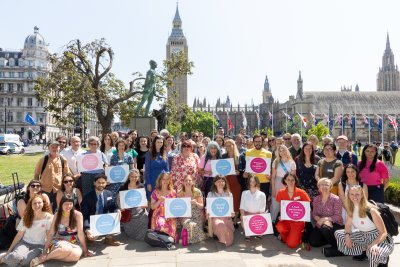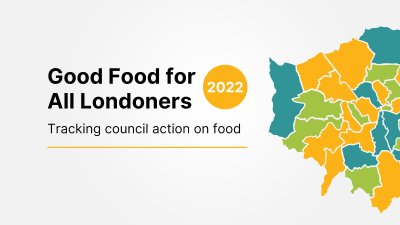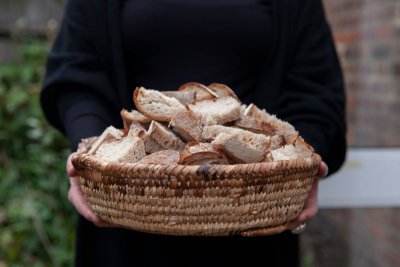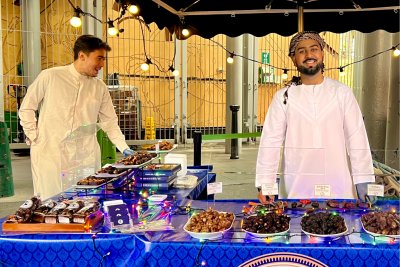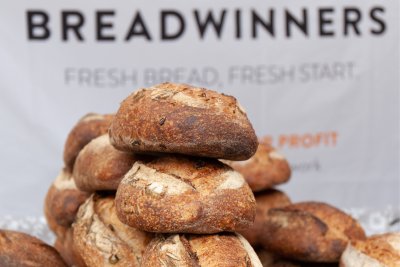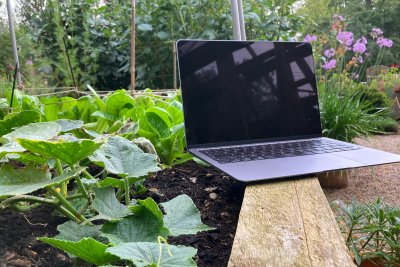Wish you were eating here?
St Paul’s Cathedral and British Museum top food survey of London’s tourist attractions
After years of enduring processed, overpriced junk, visitors may finally be in for a pleasant surprise if they stop for a bite at London’s top tourist hotspots, a survey by the Jellied Eel [1] magazine has revealed today.
St Paul’s is leading the charge for good food in the capital: as well as free-range eggs and a commitment to using local and seasonal supplies, caterer Harbour & Jones has worked with the Marine Conservation Society [2] to create a good fish guide for its chefs. The chefs also have good relationships with regional fruit and vegetable growers by visiting their farms, harvesting cherries in Sussex every year, and sponsoring bee hives in Regent’s Park and using the honey at St Paul’s.
The British Museum is also sprucing up the city’s food reputation. Caterer DO & CO has signed the Sustainable Fish City pledge [3]: a commitment to serving sustainable seafood and promoting this to customers. It also works with Olympic organisers LOCOG to develop sustainable procurement, including working with suppliers to buy only seasonal British food.
Some of the easiest ethical accomplishments have been with drinks. Jugs of free tap water are now de rigueur, and Fairtrade coffee the norm. Like others, Tate Modern collects coffee grinds for composting around Southwark, and several attractions get ethically-traded beans from Union Hand Roasted Coffee, the small, privately-owned company, based in East London.
But the survey also uncovered room for improvement. While local and seasonal were said to be a priority for all the attractions we surveyed, many of the policies were a bit woolly, with commitments often accompanied by provisos of ‘wherever possible’. Meat is also an area where many attractions could do with tightening up their policy: many buy British, but not everything is free range.
Ben Reynolds, editor of the Jellied Eel and Network Director at London-based food and farming charity Sustain said:
“It’s great to see some beacons of good practice showing visitors that London deserves its growing reputation for good food. Many attractions are taking important first steps to respond to consumers’ demand for more ethical food.. If they can do it during a recession, not only does it suggest will they continue to improve their food, but it shows what other businesses could be doing.”
Sukie Read of St Paul’s caterer Harbour & Jones said:
“In the past, the standard of catering at tourist attractions was pretty dire and poor value for money, with the attitude of caterers seeming to be that people would stay to eat regardless of the quality of the food and service. Standards have certainly improved in recent years as customers have become more discerning, and because there is a lot more competition out there.”
For enquiries contact Ben Reynolds or Kelly Parsons, tel: 0203 5596 777; email: ben@sustainweb.org. The Jellied Eel website is at: www.thejelliedeel.org.
ENDS
Notes to editors
[1] The Jellied Eel is a quarterly London magazine about ethical eating. It is produced by BIG Media and London Food Link, part of the charity Sustain: The alliance for better food and farming. The free magazine is available at over 100 outlets throughout London. The tourist attraction survey was produced for issue 32, published in July 2011. www.sustainweb.org/jelliedeel/articles/197/
[2] The Marine Conservation Society is a UK charity dedicated to the protection of the marine environment and its wildlife. www.mscuk.org
[3] The Sustainable Fish City campaign was launched in January 2011, and has already received sustainable fish pledges from fourteen London universities, the National Trust, the SEALIFE London Aquarium, top restaurants and leading caterers. This followed the adoption by the London 2012 Olympic and Paralympic Games of a fully sustainable fish policy, and the adoption by the GLA Group (Metropolitan Police, Transport for London, London Fire Brigade and the Greater London Authority – City Hall) of the London 2012 Food Vision, which includes a commitment to using sustainable fish. For further details see: https://www.sustainweb.org/sustainablefishcity
Survey highlights:
V&A; Museum of London; Science Museum; Natural History Museum; Museum of Childhood (Benugo). British organic milk, Fairtrade coffee, tea and some chocolate, some seasonal British produce, donates some leftover food to homeless charity Crisis.
Cow and Coffee Bean in Greenwich and Regents Parks; Pavilion Tea House in Greenwich Park;
Lido café in Hyde Park; Imperial War Museum; Royal Opera House (Company of Cooks) Free-range chicken, organic and Fairtrade tea and coffee, apple juice from Kent.
St Paul’s Cathedral (Harbour & Jones) Free-range eggs, Fairtrade coffee and tea, emphasis on seasonal food and supporting local producers and initiatives, sponsor bee hives in Regents Park; fish from sustainable sources.
British Museum (DO & CO) Sustainable Fish City signatory, and commitment to buy more British, seasonal produce.
National Maritime Museum (Elior) Buys local and seasonal where possible, avoids using the most endangered species of fish.
The Tate Gallery (in-house caterer) Only uses suppliers that offer sustainable food; food waste recycled, coffee grinds composted.
Pavilion Café, Victoria Park Producers from within 50 mile radius, most food organic, Fairtrade tea and coffee, plans to grow own vegetables on nearby waste land.
Published Thursday 28 July 2011
London Food Link: London Food Link brings together community food enterprises and projects that are working to make good food accessible to everyone in London to help create a healthy, sustainable and ethical food system for all.
